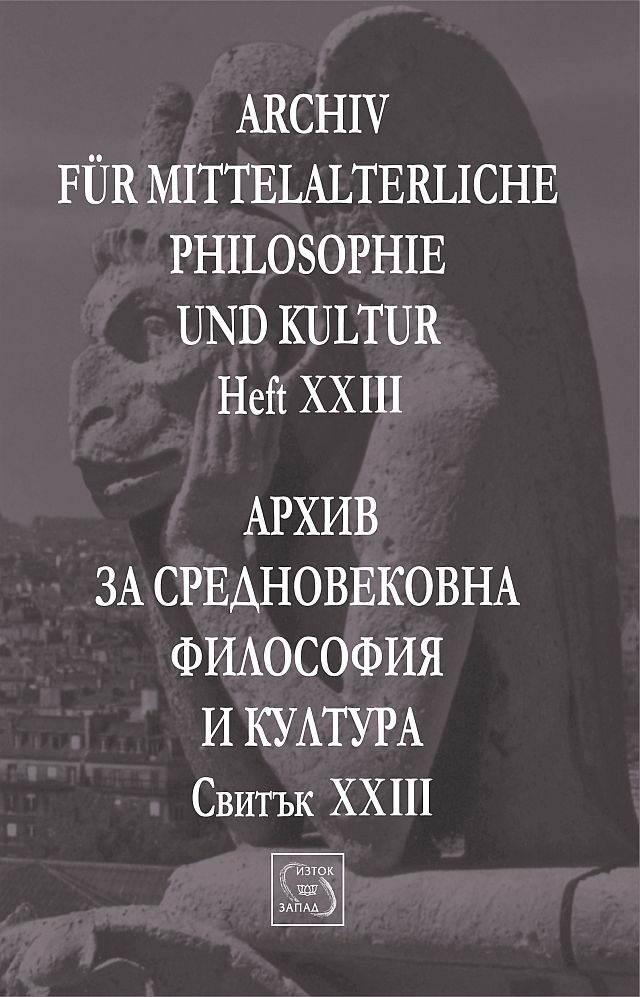„Ден първи, ден осми и ден невечерен“
в доктрините на византийските отци (ІV–VІІІ в.)
„Day one , day seven and the day-without -evening “ in the doctrines of the Byzantine Fathers (4th– 8th Centuries )
Author(s): Kalin YanakievSubject(s): Christian Theology and Religion, Philosophy of Middle Ages
Published by: Издателство »Изток-Запад«
Keywords: aeon; eschatology; Hexameron; eternity; Byzantine patristics
Summary/Abstract: The subject of the article presented is the theological vision of the two „aeons” as it was developed in certain major works of the Byzantine Fathers and Church writers (4th – 8th Centuries) and theirspecific conception of the coming of the „future aeon” into the circle of the „aeon of this world”. This coming is accomplished by the „event of Christ”, and the resurrection and ascension of human nature in His Person. The „circular” structure of the „aeon of this world” is analysed as well as its specific measurability in terms of the „one day” and the „seven days” of the week, this „seven” being defined by St John Damascene as „the number of this world”. Itis the eschatological event of Christ’s Resurrection – the accomplishment of the „aeon to come” in the circle of „this aeon” – that,according to the Byzantine authors concerned, gives ground to their doctrine of the „eighth day” (which is also the „first day” of the healed Creation and a „day-without-evening”). In this article it is also my purpose to defend the assumption that this very doctrine laid the foundations of the peculiar Church perception of time as not-of-this-world time, which resides in this world.
Journal: Архив за средновековна философия и култура
- Issue Year: 2017
- Issue No: 23
- Page Range: 81-99
- Page Count: 19
- Language: Bulgarian
- Content File-PDF

